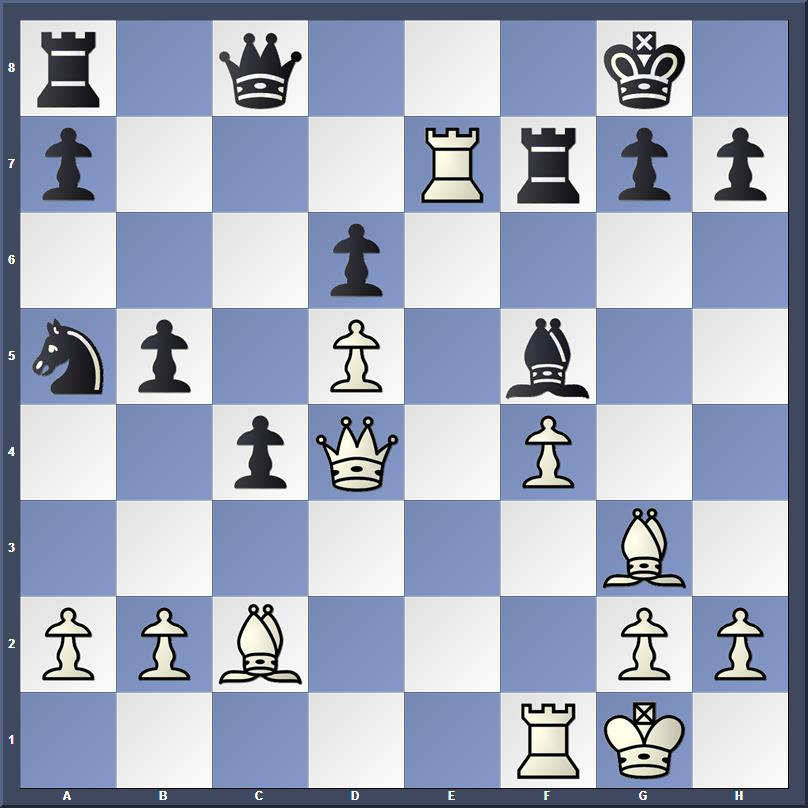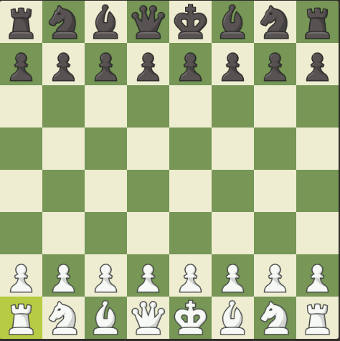Paul Morphy – The Chess Collector
Por um escritor misterioso
Descrição
Author: Geza Maroczy (1870-1951) translated by Robert Sherwood Year: 2012Publisher: Caissa EditionsPlace: Yorklin, DE Description: xiv+292 pages with portrait of Morphy, diagrams, illustrations, tables and indexes. Royal octavo (9 1/4" x 6 1/4") bound in original publisher's red cloth with gilt lettering to spine and c
Author: Geza Maroczy (1870-1951) translated by Robert Sherwood Year: 2012Publisher: Caissa EditionsPlace: Yorklin, DE Description: xiv+292 pages with portrait of Morphy, diagrams, illustrations, tables and indexes. Royal octavo (9 1/4 x 6 1/4) bound in original publisher's red cloth with gilt lettering to spine and cover. Preface by Dale Brandreth. Translated by Robert Sherwood from the original German edition. First edition in English limited to 600 copies. Paul Charles Morphy (1837-1884) was an American chess player. He is considered to have been the greatest chess masters of his era and is often considered the unofficial World Chess Champion. A chess prodigy, he was called The Pride and Sorrow of Chess because he had a brilliant chess career but retired from the game while still young. Commentators agree that he was far ahead of his time as a chess player, though there is disagreement on how his play ranks compared to modern players. After receiving his law degree in 1857, Morphy was not yet of legal age to practice law and found himself with free time. At his uncle's urging, he accepted an invitation to play at the First American Chess Congress in New York City. After winning the tournament, which included strong players such as Alexander Meek and Louis Paulsen, Morphy was hailed as the chess champion of the United States and stayed in New York playing chess through 1857, winning the vast majority of his games. In 1858, Morphy traveled to Europe to play European Champion Howard Staunton. Morphy played almost every strong player in Europe, usually winning easily. The match with Staunton never materialized, but Morphy was acclaimed by most in Europe as the world's best player.Returning to the United States in triumph, Morphy toured the major cities, playing chess on his way back to New Orleans. Returning to New Orleans in late 1859 at the age of 22, he retired from active chess competition to begin his law career. Morphy never established a successful law practice, however, and ultimately lived a life of idleness, living off his family's fortune. Despite appeals from his admirers, Morphy never returned to the game, and died in 1884 from a stroke at the age of 47.Not yet of legal age to begin the practice of law, Morphy found himself with free time. He received an invitation to participate in the First American Chess Congress, to be held in New York from October 6 to November 10, 1857. He at first declined, but at the urging of his uncle eventually decided to play. He defeated each of his rivals, including James Thompson, Alexander Beaufort Meek, and two strong German masters, Theodor Lichtenhein and Louis Paulsen, the latter two in the semifinal and final rounds. Morphy was hailed as the chess champion of the United States, but he appeared unaffected by his sudden fame. According to the December 1857 issue of Chess Monthly, his genial disposition, his unaffected modesty and gentlemanly courtesy have endeared him to all his acquaintances. In the fall of 1857, staying in New York, Morphy played 261 games, both regular and at odds. His overall score in regular games was 87 wins, 8 draws, and 5 losses.Condition:Near fine. SOLD 2023
Author: Geza Maroczy (1870-1951) translated by Robert Sherwood Year: 2012Publisher: Caissa EditionsPlace: Yorklin, DE Description: xiv+292 pages with portrait of Morphy, diagrams, illustrations, tables and indexes. Royal octavo (9 1/4 x 6 1/4) bound in original publisher's red cloth with gilt lettering to spine and cover. Preface by Dale Brandreth. Translated by Robert Sherwood from the original German edition. First edition in English limited to 600 copies. Paul Charles Morphy (1837-1884) was an American chess player. He is considered to have been the greatest chess masters of his era and is often considered the unofficial World Chess Champion. A chess prodigy, he was called The Pride and Sorrow of Chess because he had a brilliant chess career but retired from the game while still young. Commentators agree that he was far ahead of his time as a chess player, though there is disagreement on how his play ranks compared to modern players. After receiving his law degree in 1857, Morphy was not yet of legal age to practice law and found himself with free time. At his uncle's urging, he accepted an invitation to play at the First American Chess Congress in New York City. After winning the tournament, which included strong players such as Alexander Meek and Louis Paulsen, Morphy was hailed as the chess champion of the United States and stayed in New York playing chess through 1857, winning the vast majority of his games. In 1858, Morphy traveled to Europe to play European Champion Howard Staunton. Morphy played almost every strong player in Europe, usually winning easily. The match with Staunton never materialized, but Morphy was acclaimed by most in Europe as the world's best player.Returning to the United States in triumph, Morphy toured the major cities, playing chess on his way back to New Orleans. Returning to New Orleans in late 1859 at the age of 22, he retired from active chess competition to begin his law career. Morphy never established a successful law practice, however, and ultimately lived a life of idleness, living off his family's fortune. Despite appeals from his admirers, Morphy never returned to the game, and died in 1884 from a stroke at the age of 47.Not yet of legal age to begin the practice of law, Morphy found himself with free time. He received an invitation to participate in the First American Chess Congress, to be held in New York from October 6 to November 10, 1857. He at first declined, but at the urging of his uncle eventually decided to play. He defeated each of his rivals, including James Thompson, Alexander Beaufort Meek, and two strong German masters, Theodor Lichtenhein and Louis Paulsen, the latter two in the semifinal and final rounds. Morphy was hailed as the chess champion of the United States, but he appeared unaffected by his sudden fame. According to the December 1857 issue of Chess Monthly, his genial disposition, his unaffected modesty and gentlemanly courtesy have endeared him to all his acquaintances. In the fall of 1857, staying in New York, Morphy played 261 games, both regular and at odds. His overall score in regular games was 87 wins, 8 draws, and 5 losses.Condition:Near fine. SOLD 2023

Chess Legend - Paul Morphy Game Collection by Zhongwei Guo

Paul Morphy - Wikipedia
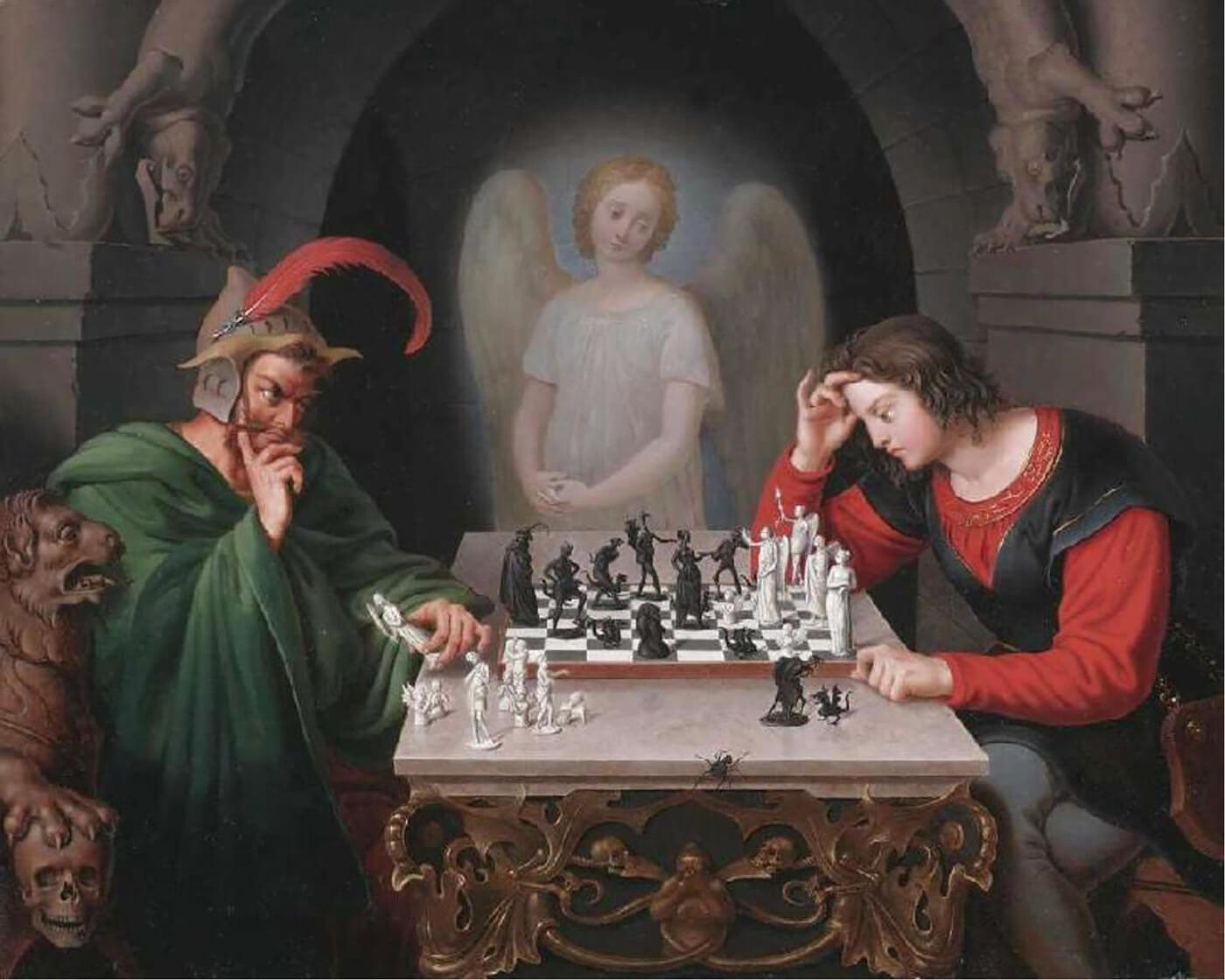
A Closer Look at Checkmate - The Surprising Chess Story

The Exploits and Triumphs in Europe of Paul Morphy, the Chess

Official Staunton Paul Morphy Series - Chess Forums
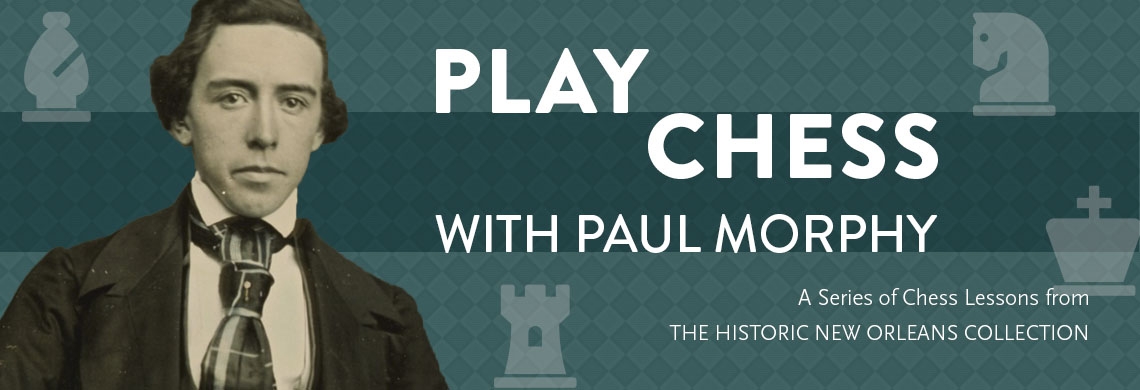
Play Chess with Paul Morphy The Historic New Orleans Collection
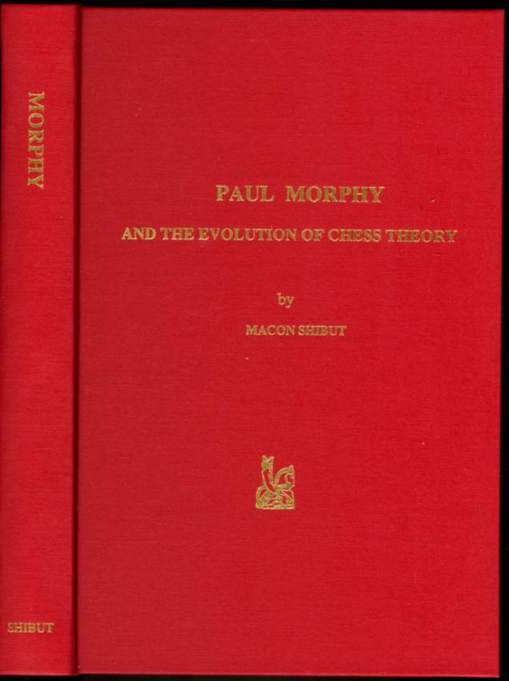
Paul Morphy and the Evolution of Chess – The Chess Collector

ADOLF ANDERSSEN VS PAUL MORPHY, GAME 6

Paul Morphy's disputed Amazing Immortal Chess Game - Brief

Sunday's review of SC Paul Morphy Staunton 3.5 Chessmen - Chess
de
por adulto (o preço varia de acordo com o tamanho do grupo)
/https://tf-cmsv2-smithsonianmag-media.s3.amazonaws.com/filer/20111212032554Young-Paul-Morphy-chess-prodigy.jpg)
